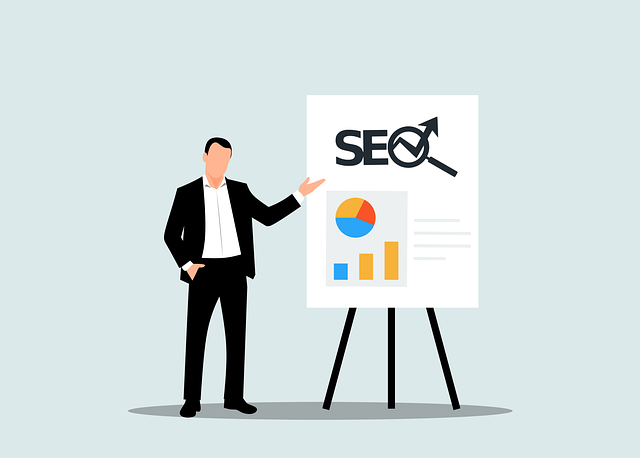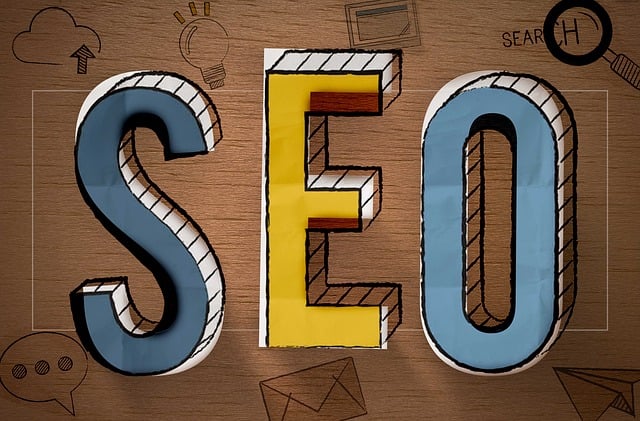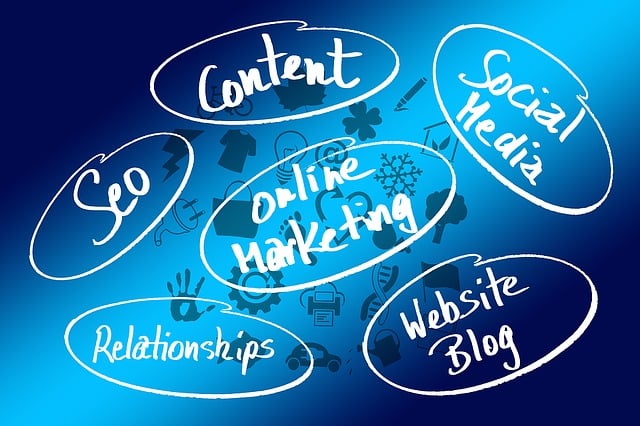The rapid evolution of search automation has transformed SEO from a manual art to a data-driven science, as discussed at the Future of SEO Conference. Early tools focused on keyword research and content optimization, evolving to include link building, social media integration, and site structure analysis. With AI and machine learning advancing, future trends like semantic search, natural language processing (NLP), and voice assistants will shape SEO strategies. Marketers must optimize for diverse devices, leverage structured data, build high-quality backlinks, and foster authoritativeness to adapt to changing ranking factors. The Future of SEO Conference will delve into these dynamics, focusing on advanced analytics, data-driven techniques, voice search optimization, semantic understanding, and personalized experiences to stay relevant in a rapidly changing digital landscape.
The digital landscape is constantly evolving, and search automation stands as a key driver. This article explores the exciting trends shaping the Future of SEO Conference and beyond. From the historical evolution of search automation to the current challenges and opportunities in SEO, we delve into the role of Artificial Intelligence (AI) and Machine Learning (ML). We also examine voice search optimization, mobile-first indexing, ethical considerations, and predictions for the cutting-edge strategies that will define the industry’s next chapter.
The Evolution of Search Automation: A Historical Perspective

The evolution of search automation is a fascinating journey that has transformed the digital landscape, especially in the realm of SEO. In the early days, SEO was more art than science, with practitioners relying on manual techniques to optimize websites for search engines. Keywords were meticulously researched and placed within content, meta tags were manually edited, and link building involved countless hours of outreach. This labor-intensive process often left room for error and required significant time investments.
However, as technology advanced, so did the demand for efficiency. The advent of automation tools revolutionized SEO practices, enabling marketers to streamline their strategies. Early search automation tools focused on keyword research and content optimization, providing insights into popular search terms and suggesting improvements for online visibility. Over time, these tools evolved to include link building, social media integration, and even site structure analysis, marking significant milestones in the industry. With the continuous advancements in AI and machine learning, the future of SEO conferences promises to explore groundbreaking trends, where automation plays a pivotal role in shaping effective digital marketing strategies.
Current State of SEO: Challenges and Opportunities

The current state of Search Engine Optimization (SEO) is a dynamic landscape, marked by rapid advancements in technology and evolving user behaviors. As we move forward, the SEO industry finds itself at a crossroads, presenting both significant challenges and unprecedented opportunities. One of the key trends shaping the future of SEO is the increasing emphasis on semantic search and natural language processing (NLP). With the rise of voice assistants and more sophisticated algorithms, search engines are becoming adept at understanding user intent behind queries, requiring SEO practitioners to align content with these nuanced searches.
The Future of SEO Conference has become a hub for discussions around these transformations, exploring strategies to overcome the challenges posed by dynamic ranking factors. From optimizing content for diverse devices and contexts to leveraging structured data and schema markup, marketers are equipped with tools to navigate this ever-changing environment. Moreover, the conference highlights the importance of building high-quality backlinks and fostering authoritativeness, which remain cornerstone principles in an age of refined search algorithms.
Artificial Intelligence (AI) and Machine Learning (ML) in Search Automation

Artificial Intelligence (AI) and Machine Learning (ML) are revolutionizing Search Automation, marking a significant shift in the way we interact with digital information. These cutting-edge technologies empower search engines to understand user intent more accurately by analyzing vast amounts of data and patterns. As AI and ML continue to evolve, they open doors to more sophisticated search algorithms that can adapt and learn from user behavior, leading to improved relevance and personalized results at scale.
At the Future of SEO Conference, experts emphasize that AI-driven search automation is not just a trend but an inevitable future. It promises enhanced user experience by providing quick, accurate, and contextually relevant responses. Moreover, these technologies enable marketers to optimize their content strategies with data-driven insights, ensuring their online presence keeps pace with the ever-changing digital landscape.
Voice Search Optimization: Adapting to the New Normal

As voice search continues to gain popularity, optimizing content for this hands-free approach is becoming a critical aspect of digital marketing strategies. The Future of SEO Conference highlights the shift in user behavior, where voice assistants like Siri, Alexa, and Google Assistant are increasingly being used to browse and purchase products online. This trend demands that businesses adapt their content creation and optimization techniques.
Website owners need to focus on implementing natural language processing (NLP) and long-tail keywords to ensure their sites are found in voice search results. Creating comprehensive, answer-focused content that addresses user queries directly is essential. Additionally, optimizing meta titles, descriptions, and headers for voice search can significantly improve a site’s visibility and click-through rates, making it an exciting area of focus for the industry at large.
Impact of Mobile-First Indexing on Content Strategies

Mobile-first indexing has been a game-changer in content strategies, especially as we look ahead to the future of SEO at conferences worldwide. With Google’s shift in focus from desktop to mobile users, optimizing content for various devices is now paramount. This means that creating responsive designs and ensuring fast loading times on smartphones and tablets are essential components of any successful content strategy.
As a result, marketers and content creators must adapt their approaches. This includes optimizing images, using schema markup for better search visibility, and crafting mobile-friendly meta titles and descriptions. Keeping up with these trends is crucial to stay relevant in the digital landscape and ensure your content ranks well in mobile search results, ultimately driving more traffic and engagement.
Ethical Considerations in Search Automation

As search automation becomes increasingly prevalent, ethical considerations come to the forefront. With advancements in AI and machine learning, automated systems are now capable of performing complex tasks, including optimizing search rankings and generating content. However, this raises concerns about transparency, fairness, and user privacy. As we move forward towards the Future of SEO Conference, it’s crucial to address these issues head-on.
One key ethical consideration is ensuring that automated tools do not perpetuate or exacerbate existing biases. These systems learn from vast amounts of data, and if that data contains inherent biases, the outcomes can be discriminatory. Additionally, the impact on human jobs must be carefully navigated; as automation takes over certain tasks, it’s essential to explore ways to retrain and upskill workers while ensuring a just transition.
Predictions: The Future of SEO Conference and Beyond

The future of SEO conferences promises a dynamic shift, reflecting the rapid evolution of search automation trends. As artificial intelligence and machine learning continue to permeate digital landscapes, understanding user intent and optimizing content for these sophisticated algorithms becomes paramount. These upcoming events will delve into cutting-edge strategies, providing insights on leveraging advanced analytics and data-driven techniques to stay ahead in a rapidly changing digital realm.
Beyond the confines of traditional SEO practices, speakers will explore emerging topics such as voice search optimization, semantic understanding, and personalized user experiences. With the ongoing evolution of search engines’ capabilities, staying informed about these predictions is crucial for marketers and content creators aiming to maintain visibility and relevance in the Future of SEO Conference.
